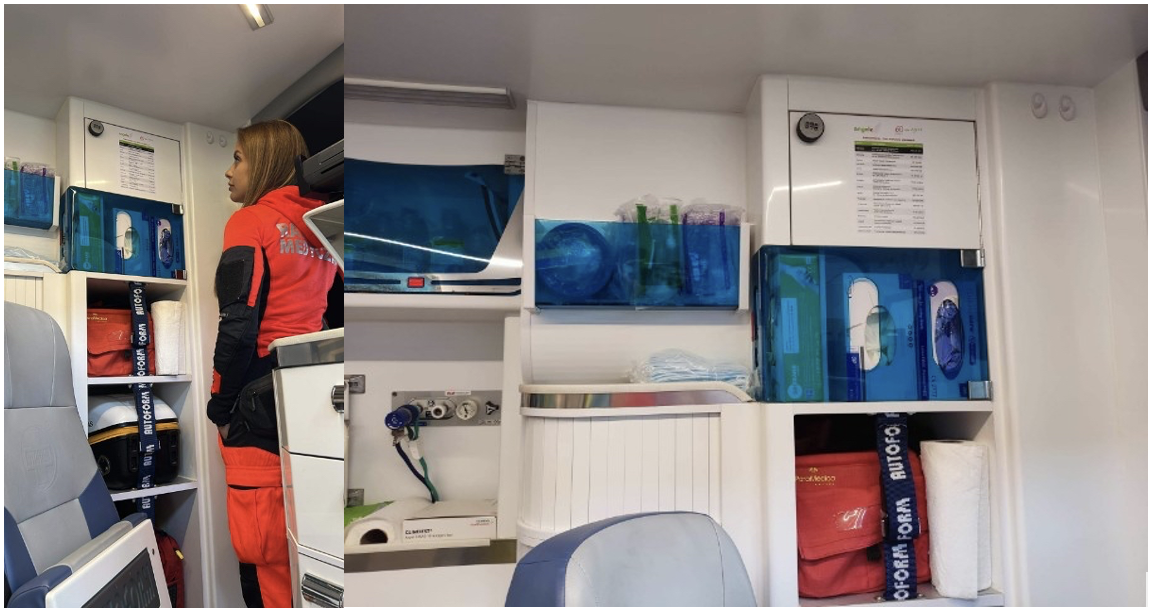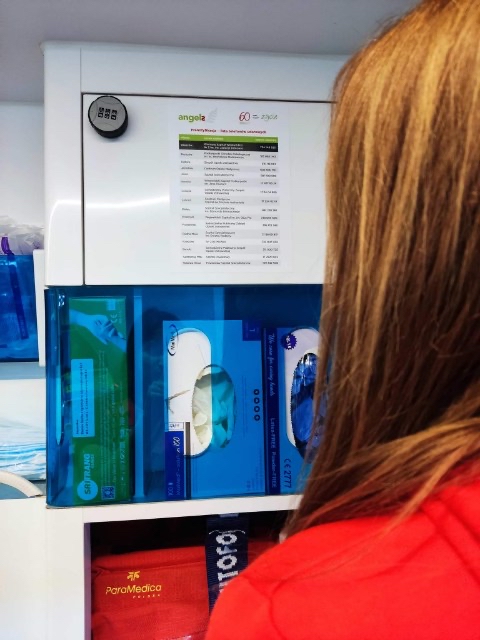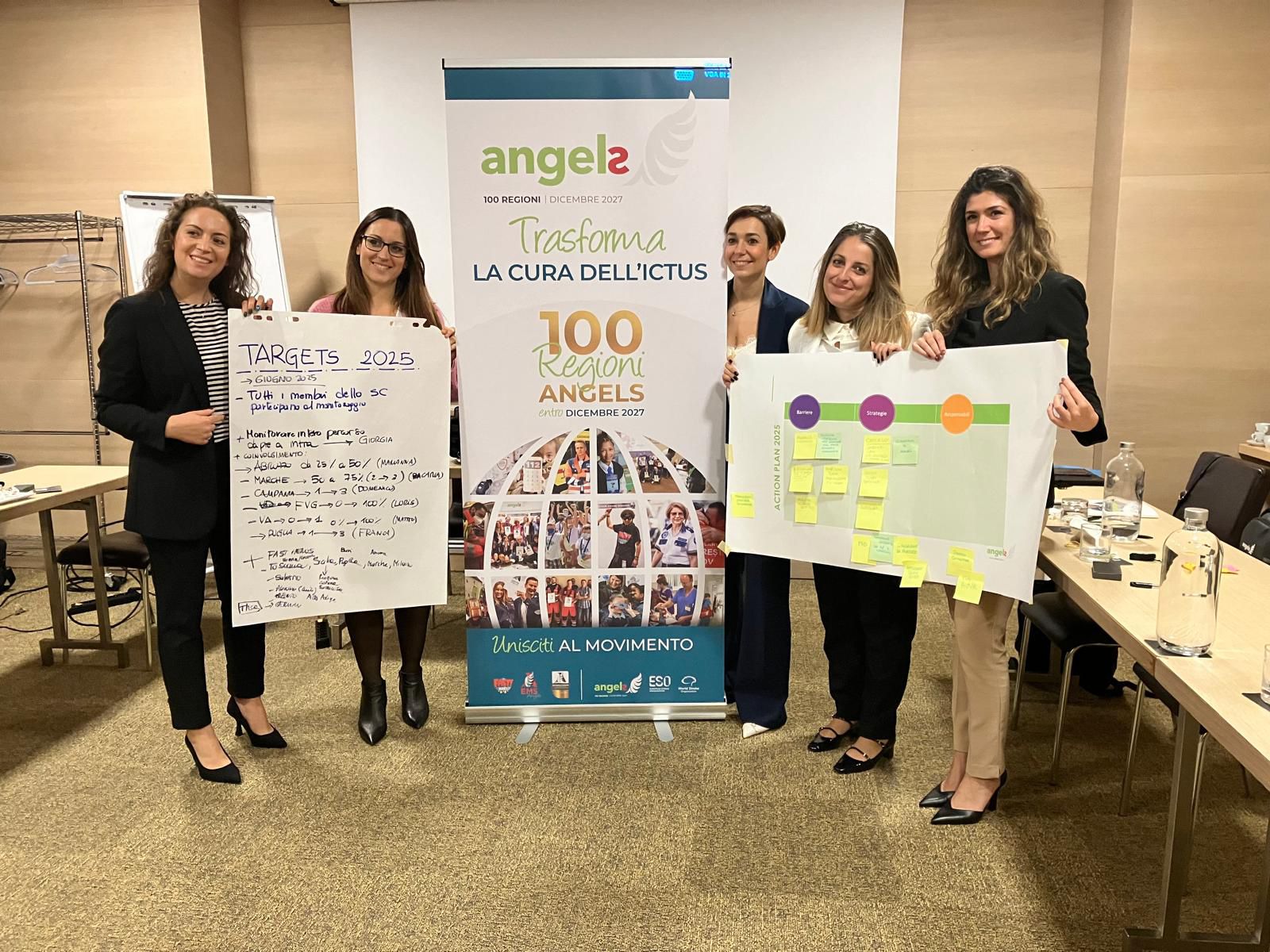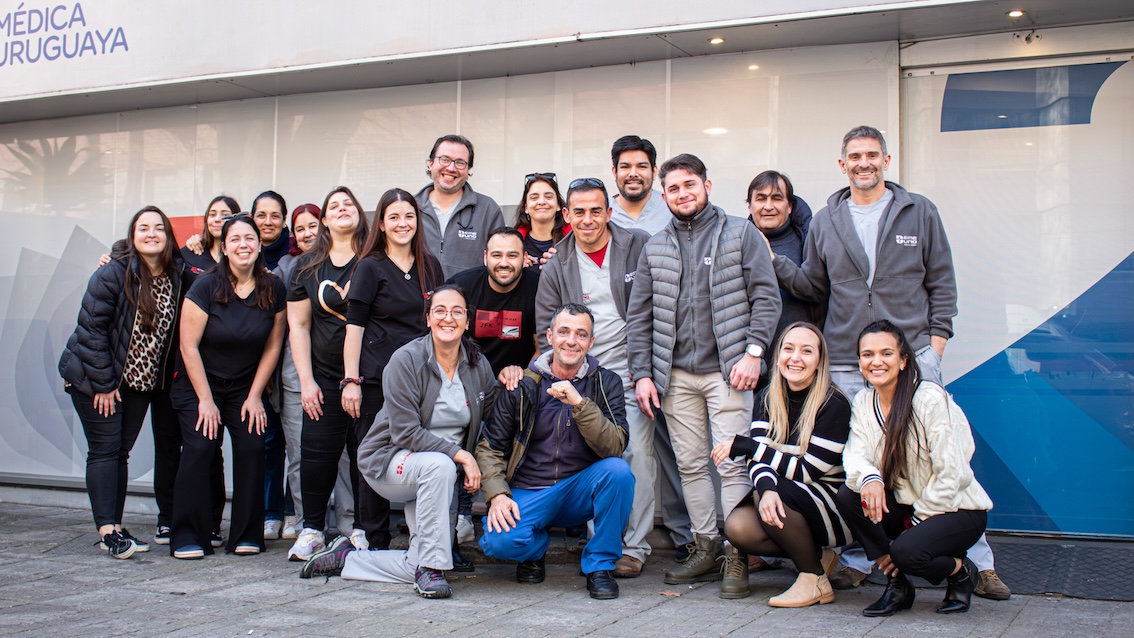
Це звичайна наклейка висотою приблизно 21 см та шириною 15 см. У верхньому лівому куті знаходиться логотип Angels; слова «60 хвилин = життя» відображаються зверху справа, список із 16 номерів телефонів наведено нижче. Наклейка має тонкий адгезивний шар, який при відриві від підкладки прилипне майже до будь-якої поверхні, наприклад, до внутрішньої панелі екстрена медична допомога.
Фактично, ви, ймовірно, знайдете наклейки, схожі на цю, в кожній одній екстрена медична допомога в Подкарпачі, гірській провінції в південно-східному кутку Польщі, де відповідальність за керування інсульт несе Праф Галина Бартосік-Псуєк, який є консультант з неврологія регіону.
23 березня цього року професор Бартосік-Псуєк був радий вітати керівників неврологія з усіх 16 інсульт одиниць у провінції на першу очну регіональну зустріч із початку пандемії. Їм було багато про що поговорити, включаючи той факт, що затримки лікування, що виникли з регіональних даних про інсульт, вказували на недоліки служби ЕМД, коли тривала криза Covid-19 припинила навчання, збільшила революцію персоналу та знизила моральний стан. Персонал швидкої допомоги по всьому регіону не мав можливості діагностувати інсульт, якщо симптоми не були очевидними; не застосовувалася шкала неврологічної оцінки, а попереднє повідомлення не суперечило одне одному.
Серед кількох втручань, які виникли в ході регіональної зустрічі (включаючи семінари з прийняття рішень, симуляція навчання та впровадження протоколу ГЦК), навчання ЕМД переважало. Пізніше в квітні, менш ніж через чотири тижні після регіональної зустрічі, 60 членів ЕМД з усього регіону зберуться у процвітаючій столиці провінції Рзезьов протягом двох днів інтенсивної підготовки.
Перед заходом консультант Angels Катарзіна Путіо провела багато часу на телефоні, викликавши певний набір цифр. Зворотний зв'язок, який вона отримала від служби ЕМД, свідчить про те, що дзвінки на телефони інсульт інсульт в деяких випадках регіону часто залишилися без відповіді. Катарзина мала чорнило, що причина цього може бути простою, і коли жахлива кількість викликів не відповіла, вона подвоїлась на ланцюжок: Чи можуть самі цифри виявитися неправильними?

Просте пояснення
Ідея про те, що прості пояснення, як правило, кращі, ніж складні, — це принцип вирішення проблем, віднесений до Вільяма з Окхема, англійського математика та філософа, народженого понад 700 років тому. «Бритва Окхема», як відомо за принципом, вважає, що під час побудови теорії слід схилятися до простоти, оскільки занадто складні пояснення часто відводять одне від правди.
По черзі Катарзіна зателефонувала до лікарень у провінції Подкаркуркі, щоб запитати: «Який ваш інсульт номер — той, де хтось завжди бере його?» Відповіді були різними. У деяких лікарнях мобільний телефон для лікування інсульт став неробочим після закінчення фінансування. У одній з найкращих лікарень із вражаюче організованим інсульт, неврологія відділення переїхало до нової будівлі, і їх кількість змінилася.
Після того, як вона перевірила або оновила кількість кожного телефону з інсульт у Подкарпакі, Катарзина застосувала ще один інсульт у бритві Окхема. «Дуже складно робити більше, що можна зробити менше», — вірив чудовий логік. Отже, замість того, щоб додавати номери телефонів до порядку денного навчання або розробляти новий процес розповсюдження оновленої інформації, Катарзина замовляла достатню кількість стикерів для кожної екстрена медична допомога в провінції Подкаркуркі та багато чого, щоб зробити.

Інструмент і тригер
Від симптомів інсульт та лікарських засобів для пацієнт до неврологічних шкал — навчання, проведене доктором Рафалом Каковаровськимпровінційної клінічної лікарні No2 у м. Реззьов, охоплює всі аспекти догоспітальної фази, включаючи відеодемонстрацію шляху пацієнт з попереднім повідомленням та без нього. Це був «відкривач для очей» для команд, власний шлях яких, як правило, закінчується в ПД; вони були вражені тим, як одна телефонна розмова може втілити в життя.
Але якщо відео зроблене для попереднього сповіщення, наклейка зробила ще більше. Він стирнув перешкоди для впровадження, встановивши в кожній екстрена медична допомога в провінції інструмент і тригер дії, яка рятує життя. У них були не лише цифри, за якими можна дзвонити, але й повідомлення про попереднє повідомлення було неможливо не помітити.
Після завершення тренінгу Катарзина здивувалася, що потрапила в чергу учасників, які або збирали додаткову наклейку для відсутнього колеги, або поділилися своїми пропозиціями щодо того, як можна покращити послугу.
Зобов’язанням кожної Команда ЕМД щодо попереднього сповіщення, а також кожного інсультне відділення щодо відповіді на телефонні дзвінки Катарзина задоволена тим, що ця ключова дія тепер підтримується з усіх точок зору, включаючи доктора Кацоровіскі та професора Бартосіка-Псуєка, чия грізна репутація повинна бути більше ніж достатньою для запобігання порушенню.
Завдяки наклейці виграпевин уже вдарився, оскільки кілька лікарень повідомляють про більш гладкі шляхи та кращий час лікування в результаті попереднього повідомлення. Але щоб дійсно оцінити, чого може досягти стикер, слід стежити за нагородами ЕМД Awards наступного року та шукати команди екстрена медична допомога з провінції Подкарпачі серед переможців.



